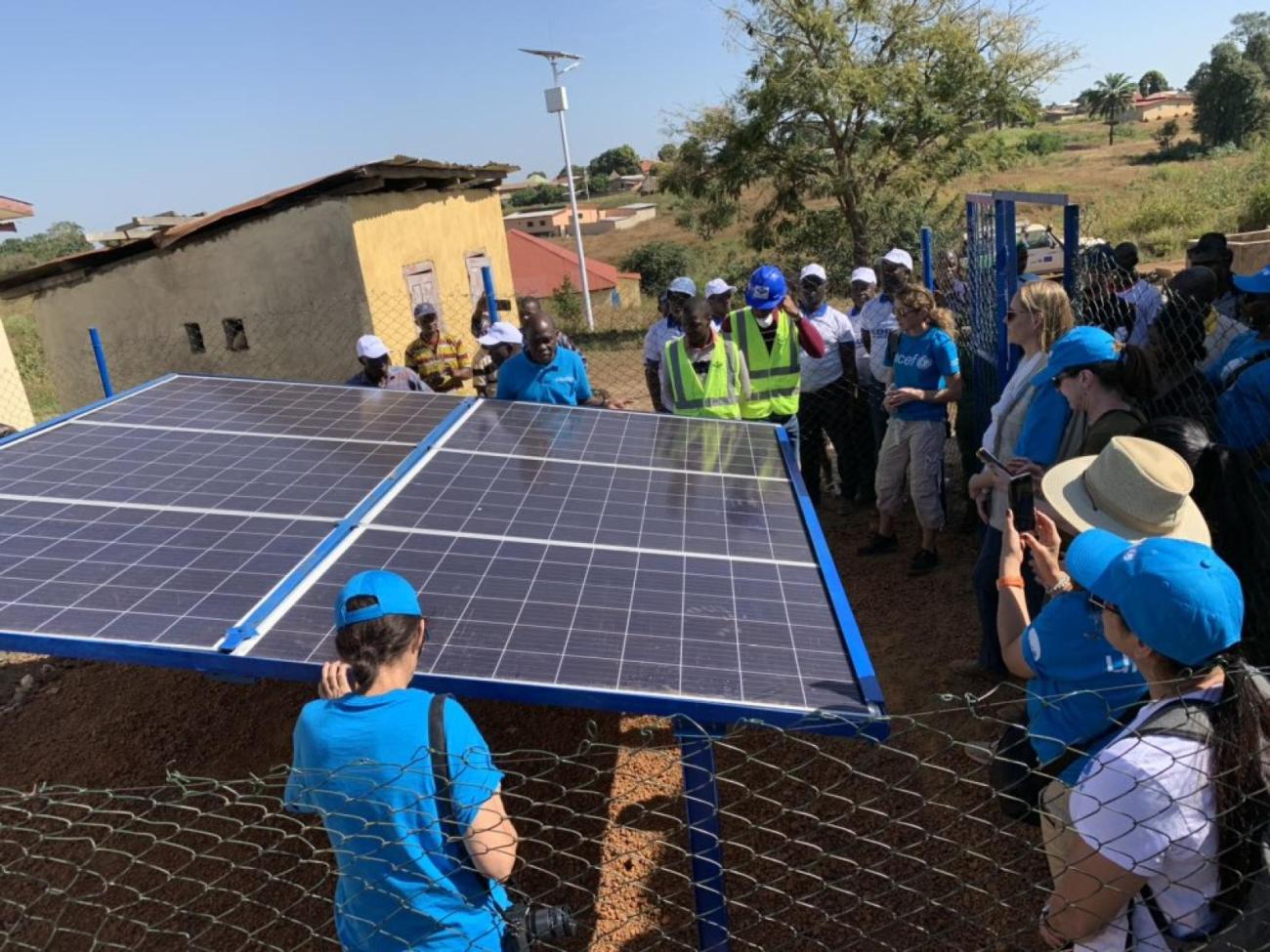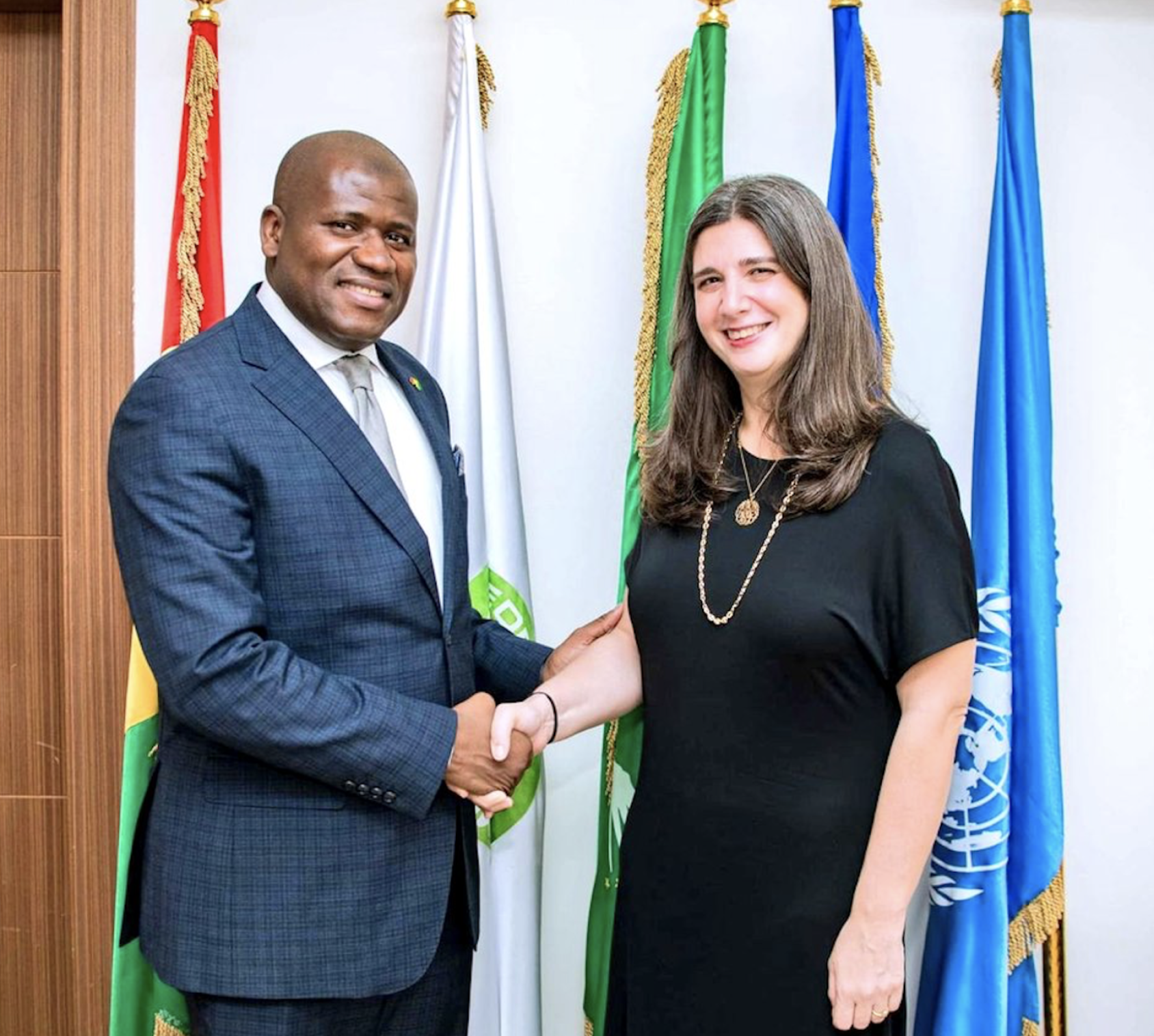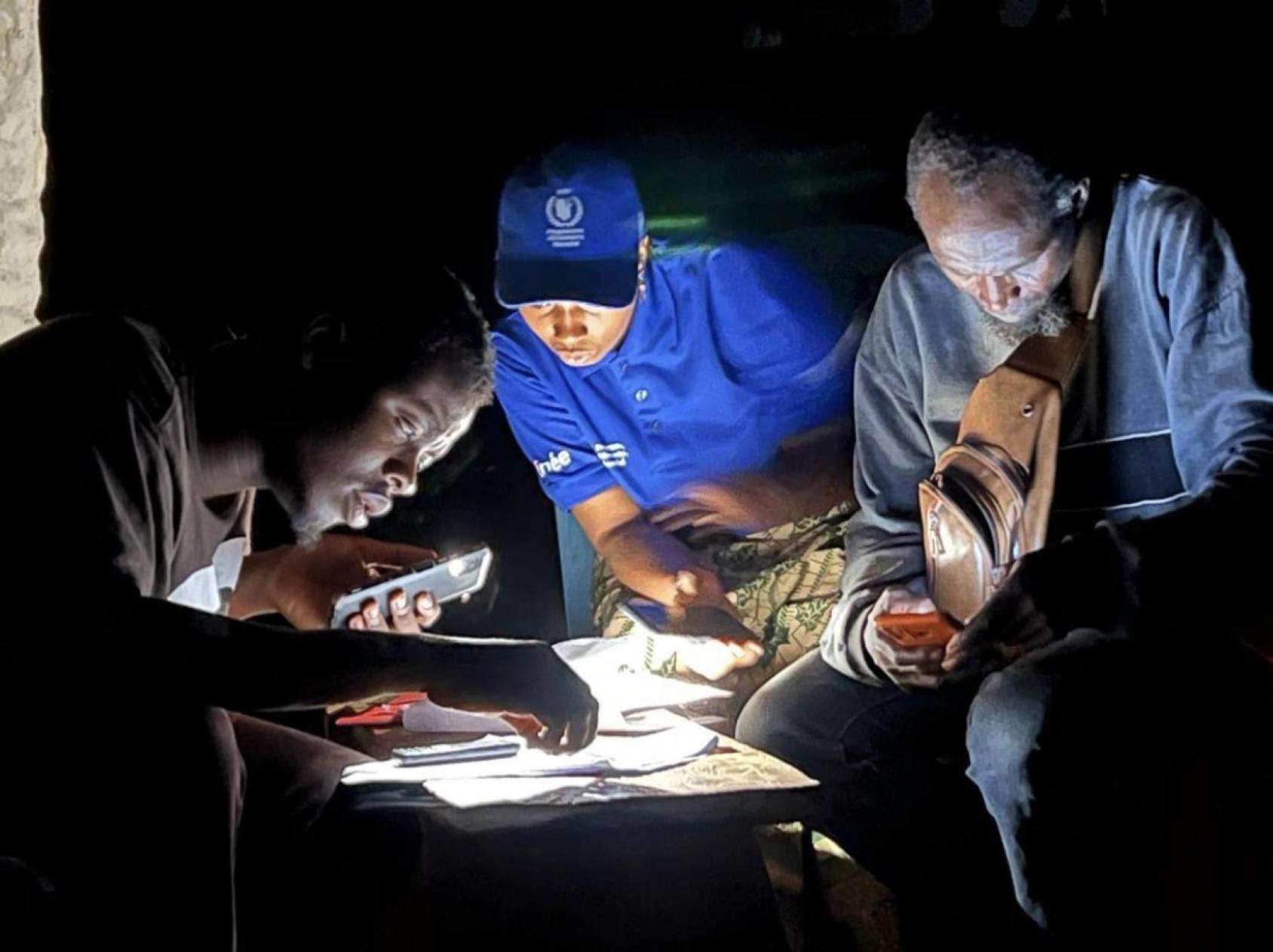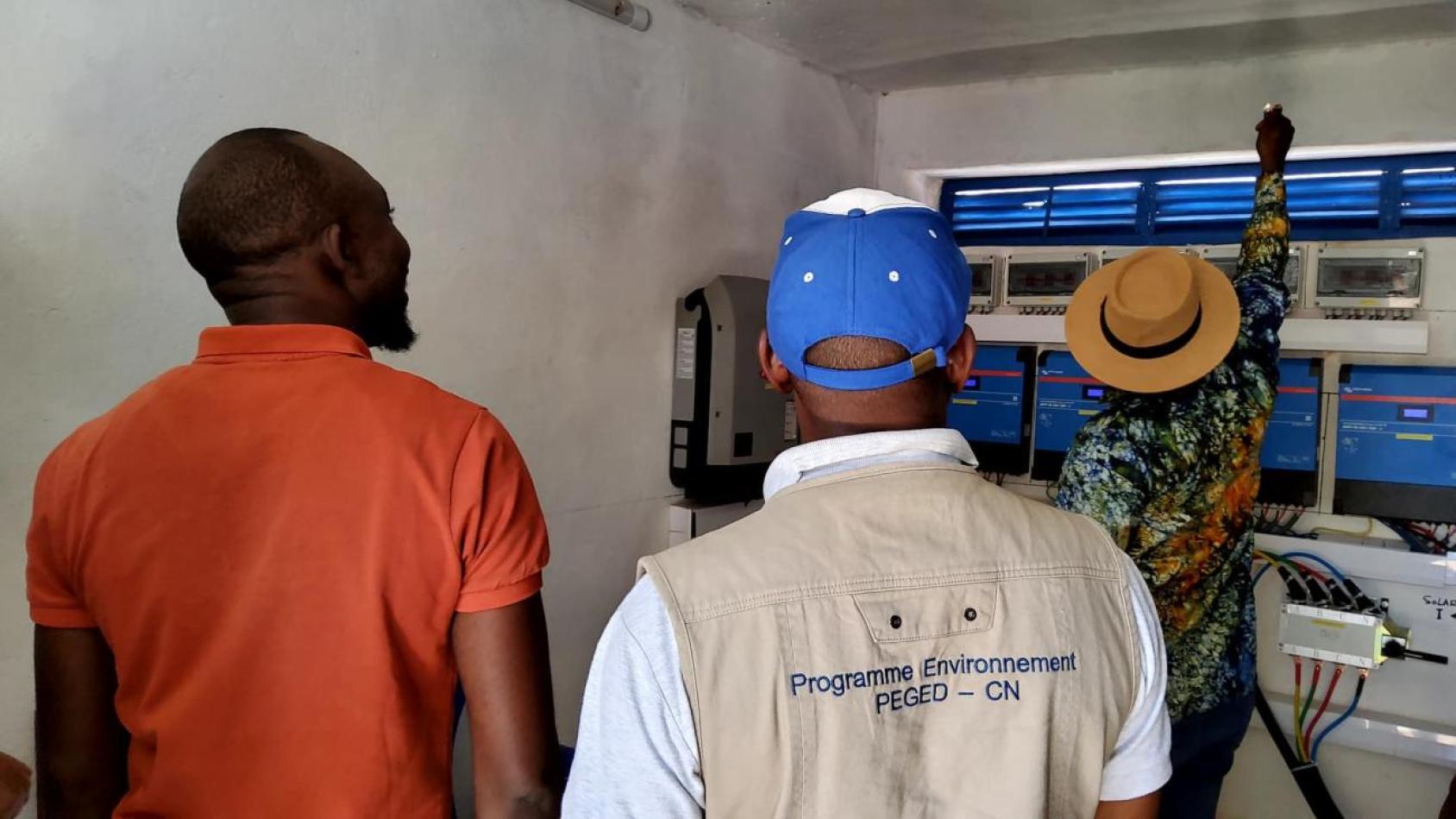Powering Progress: UN Efforts for Energy Access in Guinea

The transformative power of energy access is undeniable. It is more than just keeping the lights on—it's a catalyst that accelerates progress across the Sustainable Development Goals (SDG), particularly for women and youth in rural communities. To address this critical need, the UN in Guinea is working with the government to support rural electrification initiatives and improve the living conditions of communities.
Despite a significant increase in electricity production in recent years, access remains a challenge. While urban areas have seen improvements, rural electrification rates have unfortunately declined. This disparity highlights the urgent need for targeted interventions that reach those furthest behind.
The Resident Coordinator’s Office (RCO) has been instrumental in identifying these gaps and advocating for a more inclusive and coordinated approach to energy access. In addition to spearheading critical initiatives and fostering collaboration among UN agencies, the RCO actively engages with government bodies and international partners to mobilize resources and align efforts towards achieving universal energy access in Guinea.

Beyond kilowatts: The ripple effects of energy access
Access to energy is not just about powering homes; it is about powering dreams and opportunities. It's a key that unlocks a series of positive changes across various aspects of life, contributing directly to the achievement of multiple SDGs.
Recognizing the multifaceted impact of energy access, the RCO has prioritized listening to the voices of young people to help design solutions that work for present and future generations. Youth consultations, in collaboration with UN Development Programme (UNDP), UN Children’s Fund (UNICEF), the United Nations Office for West Africa and the Sahel (UNOWAS) and the United Nations Peacebuilding Fund, participating young leaders highlighted that the conflicts around access to resources, particularly electricity, constitute, along with political conflicts, the two major challenges to peace and security in Guinea.
The concerns raised by these young leaders highlight the urgent need to address the energy challenges facing Guinea. Reliable electricity empowers communities, drives economic growth by enabling businesses to thrive and creating jobs, and expands access to education and healthcare. It also facilitates the use of clean cooking fuels and renewable energy sources, contributing to a healthier environment and a more sustainable future. Moreover, access to energy strengthens community resilience by powering essential services during emergencies.
The RCO harnesses the interconnectedness of these development goals and works with UN agencies to expand the impact of these energy access initiatives, by ensuring that energy projects are designed and implemented in a way that maximizes their positive ripple effects. This includes establishing platforms for dialogue and knowledge sharing, such as the consultation mechanism for technical and financial partners (COMEX). As Resident Coordinator Kristèle Younès, who chairs the COMEX, points out, “UN coordination strengthens our collective advocacy and helps mobilize resources to accelerate the achievement of the SDGs in Guinea. Access to energy is a national priority, and through collaborative action, we can ensure that all of Guinea's partners prioritize and contribute to achieving this goal.”

Investing in energy, investing in people
The RCO plays a crucial role in translating strategic goals into concrete actions by facilitating partnerships between the UN Country Team (UNCT) and the government to coordinate energy access programmes. Each year, a steering committee co-chaired by the Resident Coordinator and the Minister of Planning and Cooperation plans the UNCT's priorities that guides the work of the UN on expanding energy access.
Under this framework various UN agencies are implementing initiatives that directly contribute to expanding energy access. UNICEF, for instance, is supporting the construction of the Kogbédou-Frankonédou hydroelectric dam, which will provide a clean and reliable source of electricity. Additionally, they are deploying solar panels to support the functioning of health centers and water supply systems, ensuring access even in remote regions.
With the ambitious goal of universal energy access by 2040, UNDP is promoting renewable energy and supporting the development of national strategies for sustainable energy and rural electrification. On the ground, UNDP is directly involved in the construction of off-grid mini hydroelectric power plants and solar power plants, such as the one recently inaugurated in Thianguel Bori, which will benefit over 34,000 people.
Through its agricultural support project, the UN Office of Project Services (UNOPS), is harnessing solar energy for irrigation, demonstrating the potential of clean technologies to boost productivity and reduce emissions. The World Food Programme (WFP) is also integrating renewable energy into school canteens, allowing them to generate income and cover school expenses.

Looking ahead
To maximize the collective impact of these initiatives, the RCO actively fosters collaboration among UN agencies and external partners, leveraging their diverse expertise and resources. Resident Coordinator Younès has forged strong partnerships with key stakeholders, including financial institutions like the Islamic Development Bank and the World Bank, and bilateral partners such as Japan, France, Morocco, and the African Group, to mobilize support for Guinea's development priorities, particularly in the energy sector.
While progress has been made, there is still much work to be done. The UN remains committed to supporting Guinea's efforts to achieve universal energy access. Together, we can ensure that not only does every home in Guinea have access to electricity, but also that every Guinean experiences the transformative power of energy in their daily lives.
To learn more about the work of the UN in Guinea visit guinee.un.org













